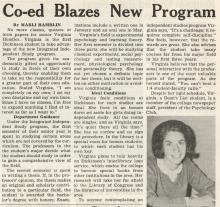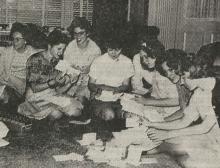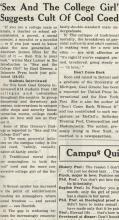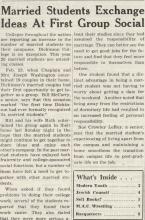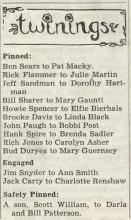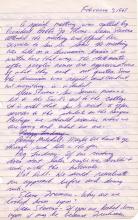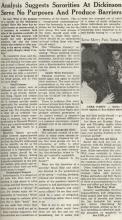Privacy and Promiscuity
The report of the Student Senate Committee on Social Rules to the Faculty Committee on Social Rules was published in The Dickinsonian. The report addresses social rules that pertained to drinking downstairs in fraternities while female students were upstairs, privacy (or, as the reported defined it, the the separation of two persons of the opposite sexes from others), and what other college policies were regarding visiting hours for women. The report listed rules at other colleges, including Swarthmore, Stanford, Reed, Oberlin, Yale, and Haverford.


